When President Bill Clinton signed an executive order in 1995 allowing clearance to classified information for LGBT officers working at federal agencies, it was a watershed moment for an often-shunned and closeted group of employees in the federal government. Then in 2011, after 16 years of simply following the order, the CIA began specifically recruiting LGBT officers.
"We realized that there were communities that had distrust that we really had to lay the groundwork before we could think about going out and recruiting -- that we really had to pay special attention and have someone dedicated, on the ground, having these conversations about our history, some honest conversations," says Lyssa, the communications officer for the Center of Mission Diversity and Inclusion.
The Agency's Network of Gay and Lesbian Employees, called ANGLE, acts as both a resource on LGBT issues for employees by hosting events for the broader CIA community and by providing a safe space.
"It's really part of our mission to make sure we have diversity abroad and the biggest pool of qualified candidates," said Lyssa, who acknowledges denying LGBT officers was part of the CIA's history, but that it's exactly that -- history.
Six openly LGBT officers working for the CIA spoke about their experiences within the agency, which range from an era when being out was a liability, up until the moment the CIA went to Pride celebrations to find potential officers. Their identities are being withheld because of the nature of their work.
 Chris, 40, recruiter and LGBT program manager for diversity and community outreach. For Chris, being in the CIA runs in the family. With the encouragement of his father, Chris joined the agency after high school through its Summer Employee Program and worked part time throughout college. Soon after graduation, he was offered full-time work at the CIA.
Chris, 40, recruiter and LGBT program manager for diversity and community outreach. For Chris, being in the CIA runs in the family. With the encouragement of his father, Chris joined the agency after high school through its Summer Employee Program and worked part time throughout college. Soon after graduation, he was offered full-time work at the CIA.
Two decades later, he was still trying to figure out his own identity but was aware of the consequences being gay could have. Even when his father, who worked at the agency, encouraged him to apply to the summer program, he was concerned about how he would be treated as a young gay man.
"I wasn't sure if it would have any impact on my father because I didn't want him to have his career affected by me as well," Chris recalls.
Coming out to his supervisor was the catalyst that led to him becoming more comfortable with opening up to the rest of his co-workers.
"I came out to her because there were times when I had to change my stories or pronouns and say like, 'I went out with her,' because I wasn't really comfortable coming out and telling people my story yet," Chris says.
These days, however, Chris makes it his job to dispel misconceptions some people have about the CIA and whether it's LGBT inclusive.
"As a recruiter, people will come to me with questions about what it's like to work at the organization and the opportunities that we have," Chris says. "But also, several people that I have spoken with have definitely become interested knowing they can work with the agency and they can be an out gay person at the CIA."
Chris's time at the CIA has not been perfect as a gay man but he uses these chances of disagreement with other officers to educate. For example, one of his colleagues shared that she did not quite support marriage equality, so he had a conversation with her about marriage rights over lunch.
"She didn't know a lot about the LGBT community ... so I tried to teach her a little bit about what it's like to be gay and to talk about some of my viewpoints and stuff like that and talked it out with her," Chris says. "Even though we had this disagreement, we were still able to work well together and she considered herself a good friend of mine when she retired."
 Andy, 49, deputy director of the Office of Terrorism Analysis
Andy, 49, deputy director of the Office of Terrorism Analysis
Andy joined the CIA in 1993, two years before President Clinton signed the executive order allowing security clearance for LGBT officers. Four years later, he came out.
"In the late '90s, there was a lot of progress after President Clinton signed the executive order," Andy says. "That's also when ANGLE became very active."
Since Andy joined the CIA, he considers the progress made in LGBT inclusion to have come in spurts. The energy that followed the executive order was kinetic, and then hit a plateau, but that moment helped Andy come out. In fact, one of his coworkers learned that Andy is gay when he had to file paperwork to notify the agency that he was in a relationship.
"I had to report" the relationship Andy says. "And I was worried about that but he was 100 percent supportive and positive about it so that left a real impression on me."
Andy hit some rocky moments with others in the agency who did not know him, but among colleagues and managers, he said his experience was universally positive. Years after Clinton's executive order was signed, he says the inclusion and acceptance of the agency now makes it easy for people to be who they are.
"We are to the point," he says, "where there is simply no need to hide who you are, to be in the closet, to worry about what other people think about you, or what the potential career impact would be if you were an openly gay person."
 Elaine, 29, production manager
Elaine, 29, production manager
Elaine joined the agency eight years ago simply because she wanted a job that was close to home.
"At the time that I was looking for a position when I was in college, I wanted to find something that was close to my family," Elaine says. "So, the D.C. area is only about two and a half hours away and the agency was actually hiring in my field, which is graphic design."
LGBT inclusivity was not on Elaine's radar when she applied to the CIA, but after joining, she chose to come out to co-workers and family. Still, as the co-chair of ANGLE, Elaine says her decision to come out had nothing to do with the CIA or the policies the agency implemented to protect LGBT officers.
"I think it was just more of coming to terms with my sexuality generally. Like, I had never actually thought about it until I came here," Elaine says. "So it wasn't a particular thing with the agency or whether I wanted to come out it was just I was at a point in my life where I was coming out."
Elaine says she had a good coming out experience within her office, especially among higher-ups like her senior officer at the time.
"She was a big ally," Elaine says. "She made it clear that she was a very big supporter of ANGLE and I think that definitely had a big impact."
 Tracey, 50, technical intelligence officer
Tracey, 50, technical intelligence officer
Tracey joined the agency 10 years before President Clinton issued the executive order granting security clearance to LGBT federal officers, but she could not help but to blaze a trail anyway. She came out in 1988, when being openly gay could have an impact on her career.
"I knew it was a risk to come out but I also recognized that my integrity was at stake," said Tracey. "I went through a very stringent security review during that time frame when I came out."
That review lasted nearly two years, and then the following year, she underwent an extra layer of security review. But Tracey pushed ahead with her work, and let the results speak for her, all while navigating a discriminatory work environment. She still remembers people whispering in the halls as she walked around the agency. It was a constant reminder that some officers were not so accepting.
"I heard a lot of hall talk about who I was, and whether I was capable as an officer because I happen to be LGBT," Tracey says. "I heard hall talk because I was a parent to a child and how I must be a very horrible parent to raise them in a lesbian relationship."
Tracey says straight and LGBT peers who feared "guilt by association" also ostracized her. In 1995, following the executive order, Tracey and two other officers stood up against the anti-LGBT culture surrounding the CIA by founding ANGLE. Starting the group came with some push-back but the reception over time was welcoming.
"It was hit or miss initially. I had a couple senior officers who were willing to sit down and listen to me," Tracey says. "I had some other officers who cautioned what I was doing saying it would be a detriment to my career and it would kind of sideline me a little bit or take us off topic so I was cautioned that maybe this would not be the right thing to do."
It took one-on-one conversations with multiple senior officials for the group to gain traction. Tracey, she says, is stubborn, and that tenacity helped get enough support to launch ANGLE. After three decades of work with the agency, Tracey still encourages others to join, if it is their calling.
"This agency has done a wonderful introspective of who they are and where they need to go and what's their most valuable resources and that is their people," Tracey says about joining the agency. "So they've taken the time to ensure that we get their time."
 Kelly, 37, technical intelligence officer
Kelly, 37, technical intelligence officer
Kelly joined the CIA in search of "something new and exciting" after working in the private sector. She was already out, but she was not aware of the CIA's LGBT-inclusive atmosphere. She says it didn't make a difference to her initially -- this was a career move, nothing personal. But after seven years with the agency, Kelly says the CIA's message of diversity permeates to employees.
"It sends a message to potential new applicants that the agency is a place that you can be yourself," Kelly says, "and that is an important message to send because it's good for morale. So, it's really important for all types of diverse individuals including LGBT officers to know that their valued and supported."
However, Kelly remembers one instance shortly after joining that made her second-guess the CIA's message of inclusion. Despite having a very supportive friend and coworker, someone suggested that keeping her personal life to herself would be best for her career. This comment deterred her from joining ANGLE at first; her partner eventually convinced her to join.
"She had attended an orientation for spouses and partners and some of our ANGLE leaders had spoke at that orientation and had ended up talking to my partner," Kelly says. "I joined ANGLE with the full support of my partner as well as my friend, who works here and I slowly became more and more involved and felt increasingly like I was part of a larger community at the CIA."
 Kyle, 26, counterterrorism analyst
Kyle, 26, counterterrorism analyst
Kyle was 23 and closeted when he first joined the agency, so his sexual orientation was not a factor when he was trying to decide where to work next. In fact, he says he knew little about the inclusion and diversity practices at the CIA.
Kyle, originally from the Midwest, felt the urge to join government work after the September 11, 2001 attacks. After working for different federal agencies and working with Congress, Kyle realized what he wanted to prevent terrorist attacks. That is when he considered the CIA.
"I didn't actually have any ties to New York City or Washington, D.C.," Kyle says, "but at the same time I think that those events kind of showed to me that our world isn't inherently safe and our country wasn't inherently safe."
Since joining the agency, though, Kyle says there was the added bonus of working in an accepting environment, which eventually helped him come out. Kyle has since become involved with ANGLE, and he says he sees the group's influence throughout the widening inclusion within the agency, both socially, and legally. He especially saw it after the U.S. Supreme Court's ruling to strike down part of the so-called Defense of Marriage Act, and how that would affect LGBT federal employees.
"The agency was just very quick to respond to the ruling and really was effective in educating its employees about the impact of the DOMA decision," he says.
Kyle says other agencies should follow suit with encouraging more diverse and inclusive staffs. He acknowledges that that sort of change requires a dual effort of changing at the top and grassroots-level involvement by employees. In any workplace, Kyle encourages leaders of both public and private offices to cultivate inclusive policies.
"What made me feel comfortable was walking down the halls [knowing] that I was supported by my peers and my colleagues," Kyle says. "It was really an understanding that my peers here and that the policies, I guess, with the policies that the agency had set in place created a culture where my peers were actually affirming of me and that made it a lot easier to fully come out."


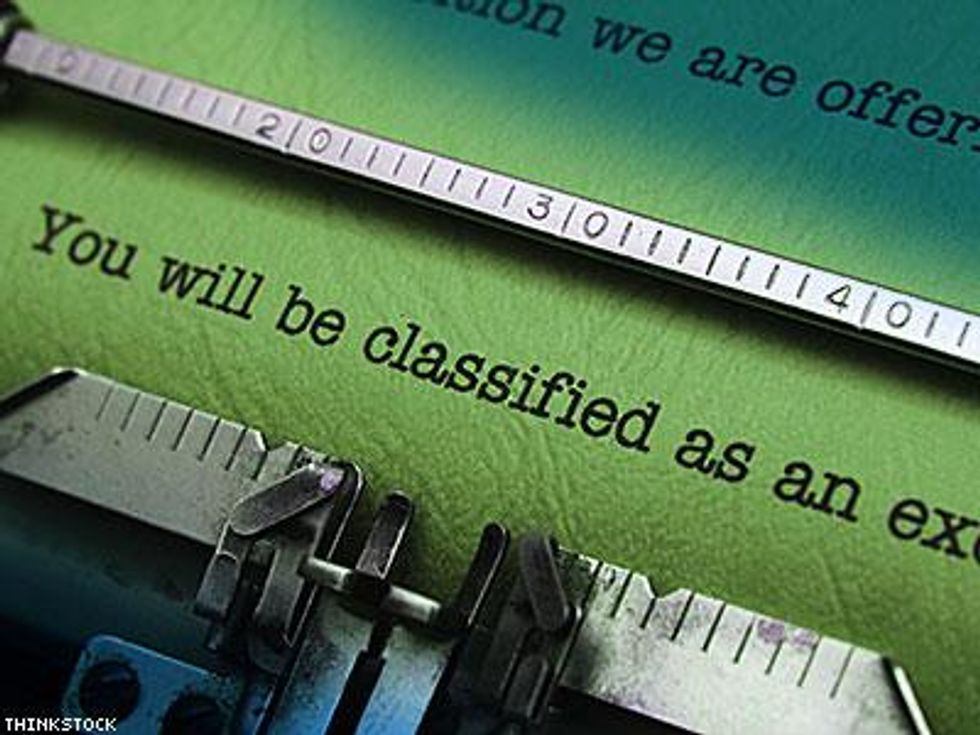 Chris, 40, recruiter and LGBT program manager for diversity and community outreach. For Chris, being in the CIA runs in the family. With the encouragement of his father, Chris joined the agency after high school through its Summer Employee Program and worked part time throughout college. Soon after graduation, he was offered full-time work at the CIA.
Chris, 40, recruiter and LGBT program manager for diversity and community outreach. For Chris, being in the CIA runs in the family. With the encouragement of his father, Chris joined the agency after high school through its Summer Employee Program and worked part time throughout college. Soon after graduation, he was offered full-time work at the CIA. Andy, 49, deputy director of the Office of Terrorism Analysis
Andy, 49, deputy director of the Office of Terrorism Analysis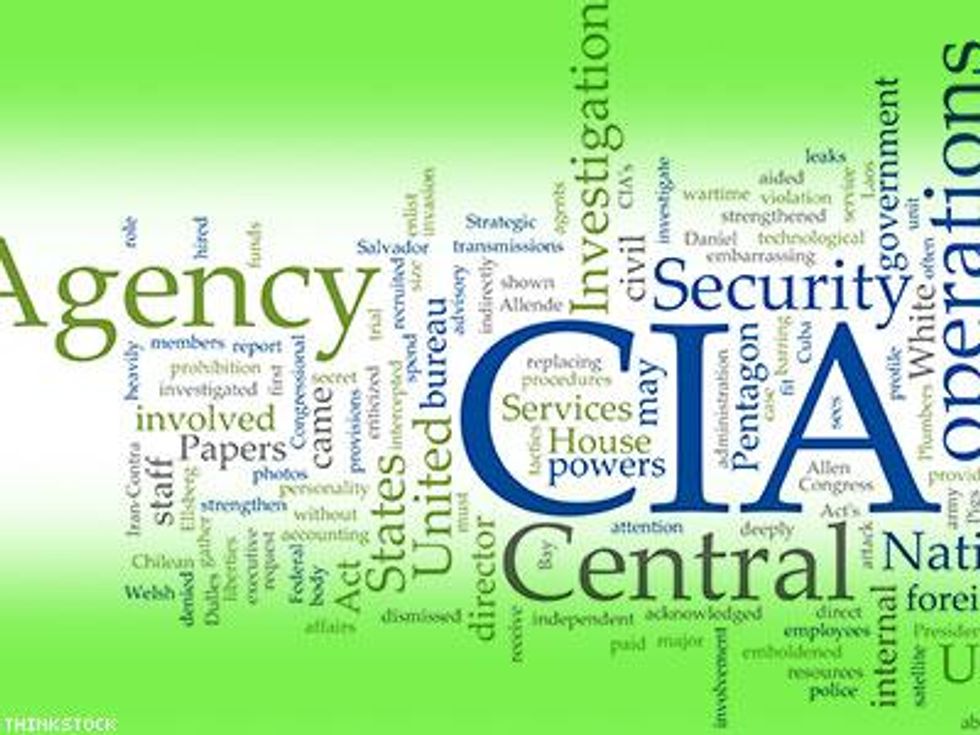 Elaine, 29, production manager
Elaine, 29, production manager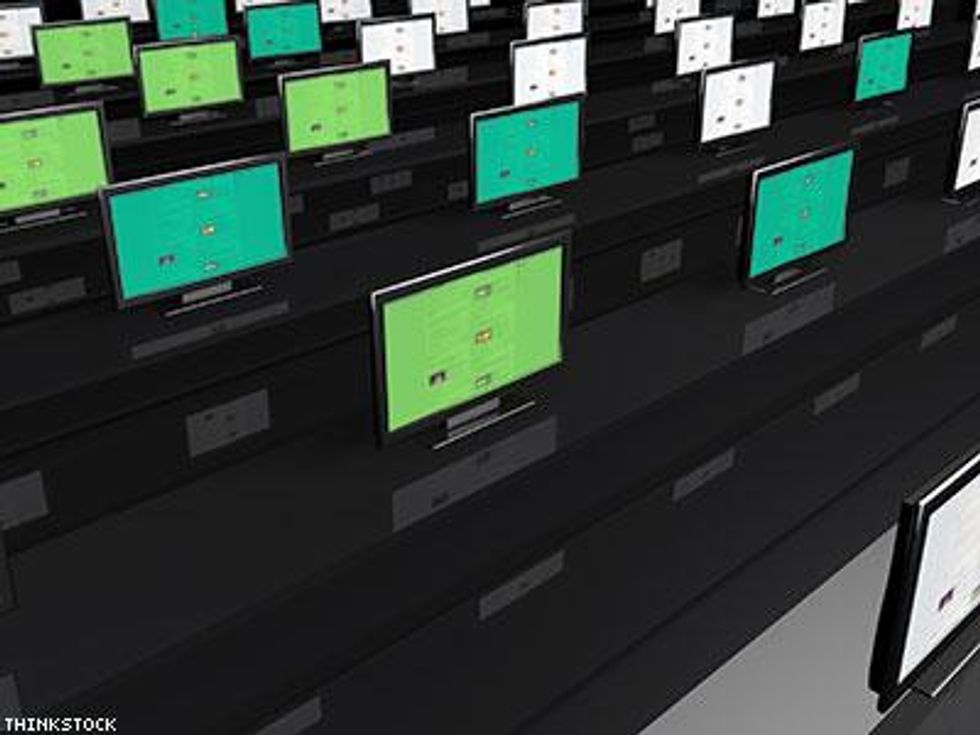 Tracey, 50, technical intelligence officer
Tracey, 50, technical intelligence officer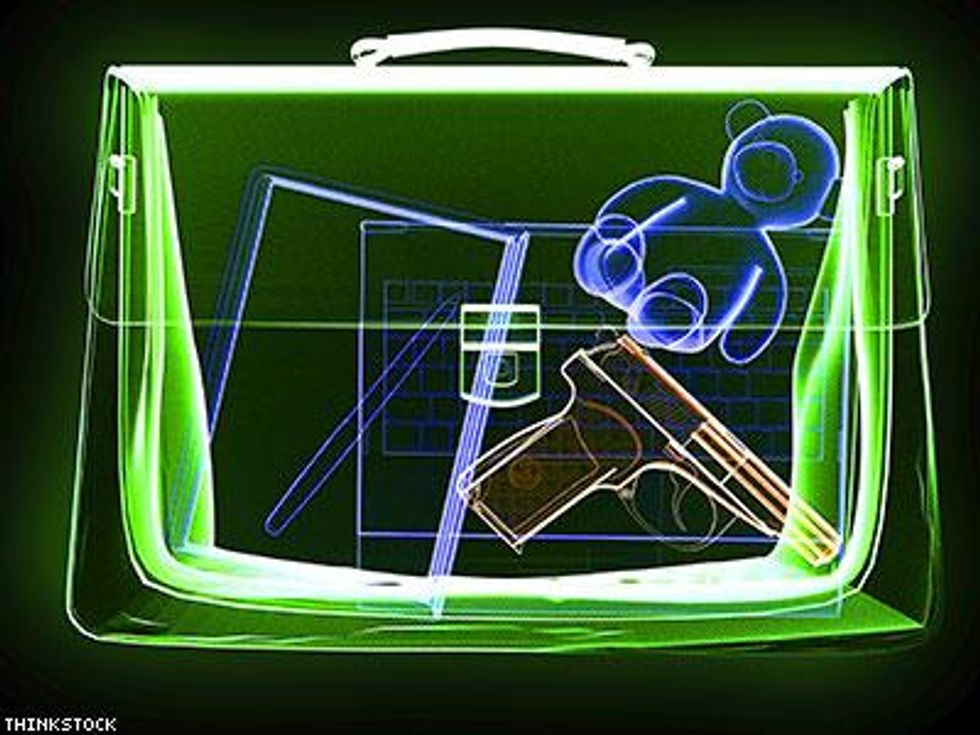 Kelly, 37, technical intelligence officer
Kelly, 37, technical intelligence officer Kyle, 26, counterterrorism analyst
Kyle, 26, counterterrorism analyst



























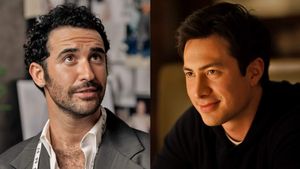









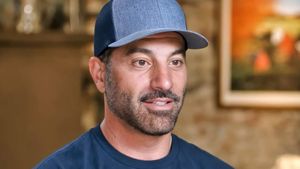


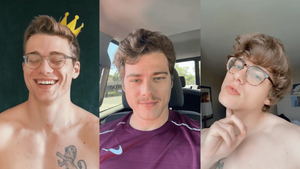

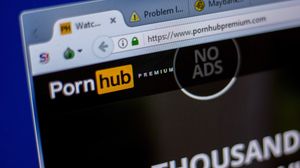

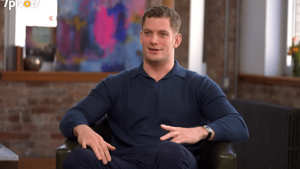





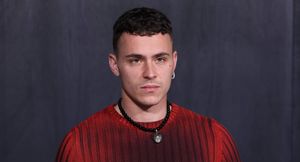






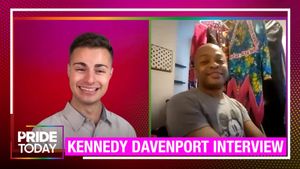





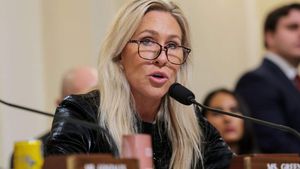

Charlie Kirk DID say stoning gay people was the 'perfect law' — and these other heinous quotes